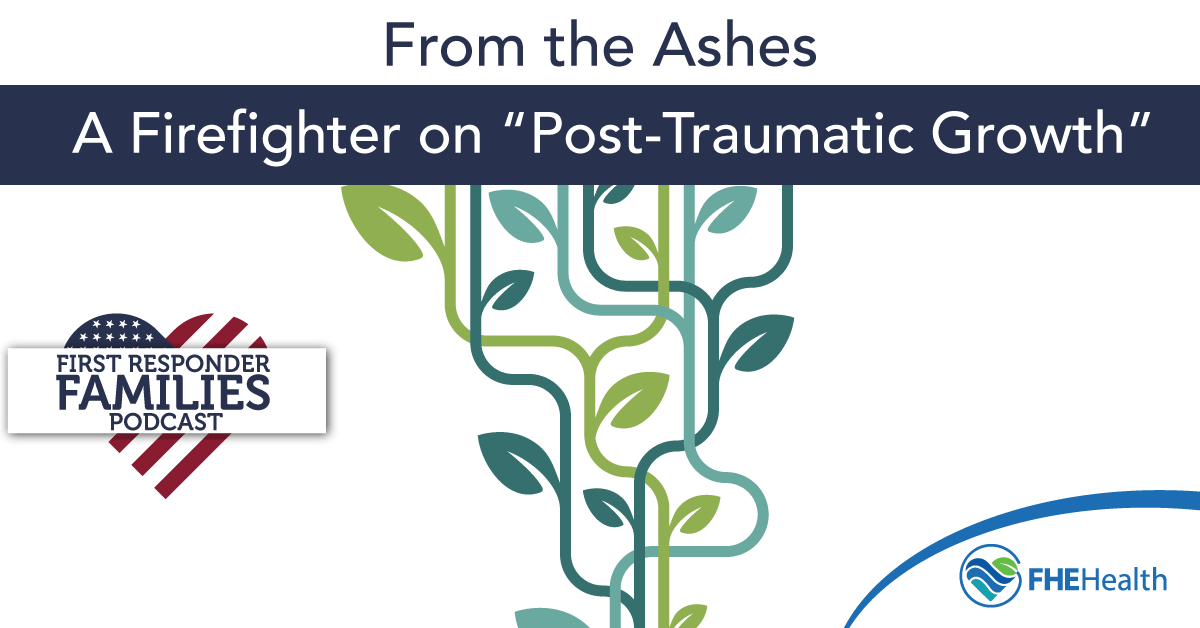
In this installment of the First Responder Families Podcast, show host and licensed family therapist Ivona Bhahda explored the innovative concept of “post-traumatic growth,” by interviewing a former firefighter about his journey through trauma, alcoholism, and PTSD. When post-traumatic growth is an end destination, what are its building blocks? Read on for those insights.
What Is Post-Traumatic Growth?
The term may be new to many readers. At its core, post-traumatic growth is the understanding that even the deepest pain can be an opportunity for not just surviving but for growth and transformation.
Bhahda defined post-traumatic growth this way: “[It’s] how people can not only survive trauma, addictions, and mental health challenges and struggles, but actually experience transformation through them. And it is not just about putting a silver lining on pain. It is about recognizing the strength, the insight, and healing that can come from walking through the fire.”
In other words, post-traumatic growth should not be confused as a kind of sugarcoating of suffering; but some things can be learned from walking through the flames of suffering, and to discover what those are is an opportunity for healing and self-growth.
PTSD, Alcoholism, and Suicidal Depression: The Turning Point
Bhahda’s conversation partner was a firefighter with more than 33 years of service and a former patient in FHE Health’s specialized treatment program for first responders, Shatterproof FHE Health. “Jim” (to protect his anonymity) shared some of his story through PTSD, alcoholism, and suicidal depression.
The turning point came in treatment, as Jim began “opening up those emotions” that he “had been bottling for years.” He began to get honest about the problems in his life and to acknowledge how his choices played a part. And, by hearing his peers share in group therapy, he developed greater emotional awareness and self-understanding.
Jim also shared how sponsorship had contributed to his growth — and, that he was preparing to become a sponsor himself. This, too, was another building block of post-traumatic growth.
The Path Toward Self-Transformation: What’s Surprising?
“Has something surprised you about you in the past 10, 12, months … since you are on a different path?” Bhahda asked.
“I would say the honesty that I speak with now,” Jim said. “I felt like I had so many demons. Like that closet back there was full of skeletons, and I never wanted to open that door.”
“By drinking and all that,” Jim continued, “I could mask all that and keep that door shut. When it came open, I was terrified. But now I’ve learned that if I just tell the truth and tell people what’s going on, I don’t have to wake up tomorrow and clear my text messages.”
Jim went on to share more of the gifts that he has experienced in this season of post-traumatic growth. Catch the rest of the episode to learn what those are.






